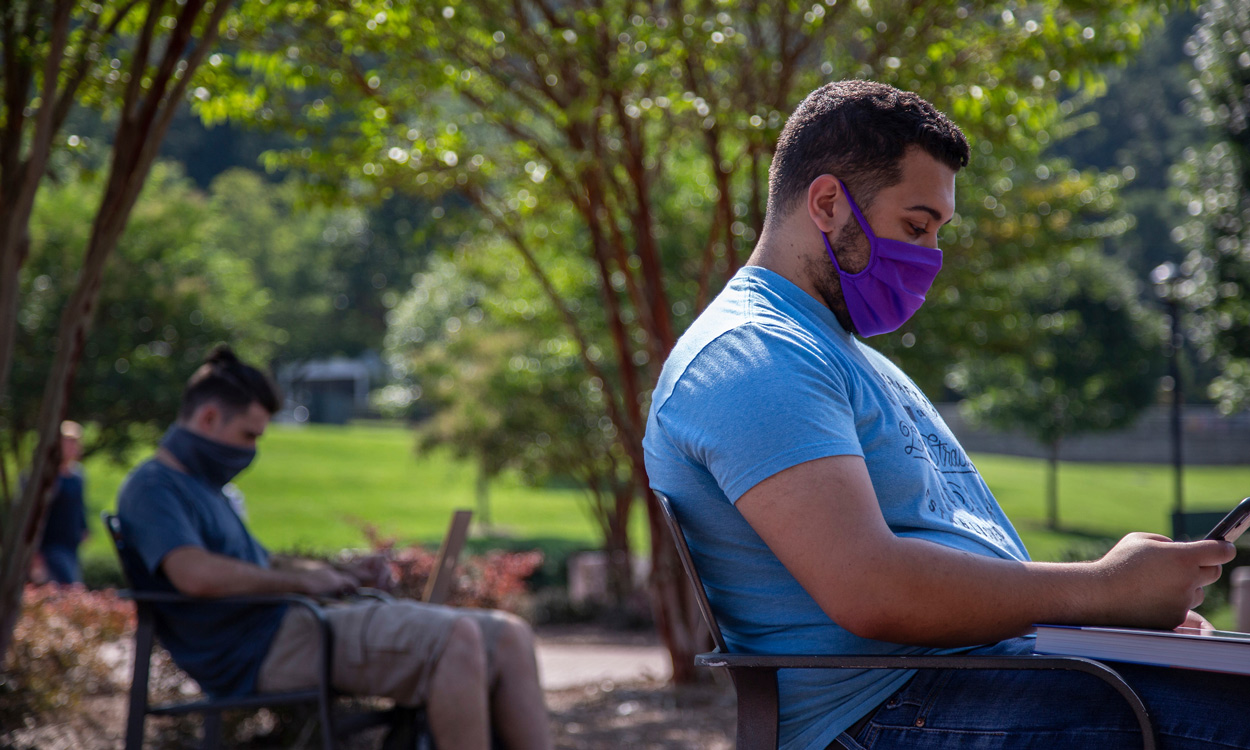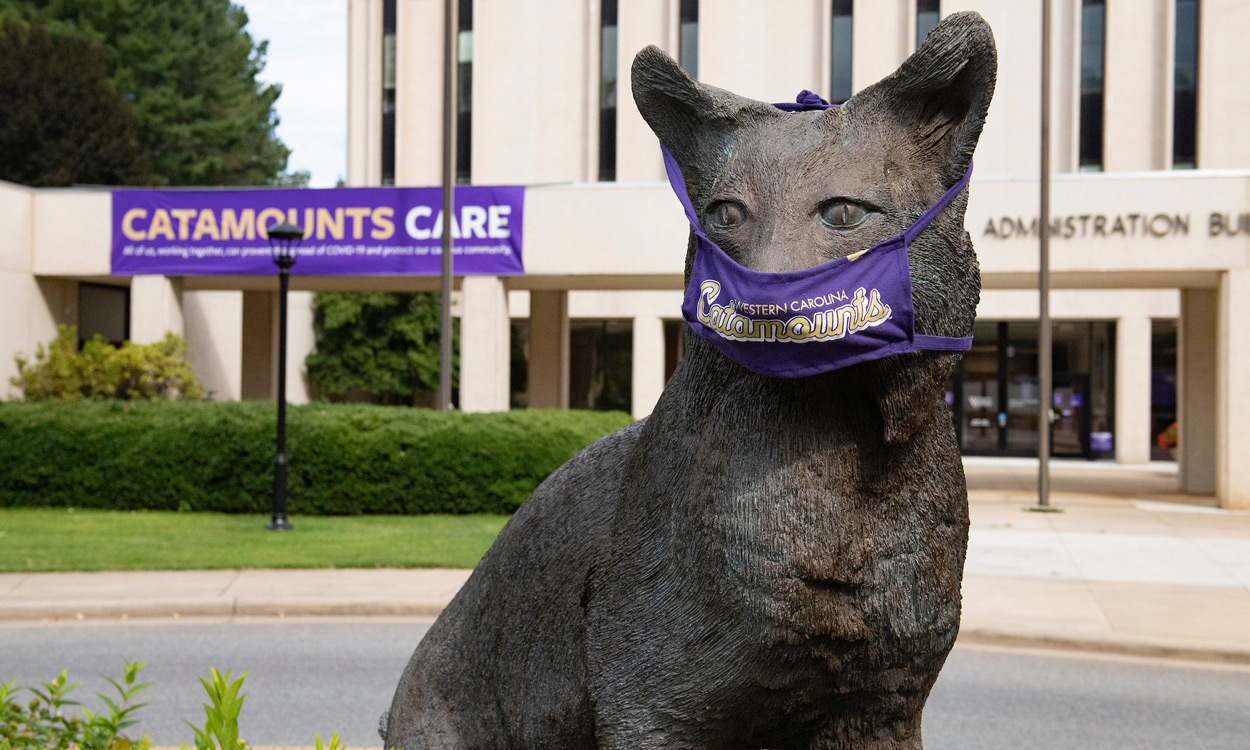Regional economic impact of pandemic examined by the Center for the Study of Free Enterprise
Thanks to a grant from the North Carolina Policy Collaboratory, the Center for the Study of Free Enterprise at Western Carolina University is conducting an analysis of the economic impact of the pandemic in the region.
The study intends to present a comprehensive policy analysis of the COVID-19 aftermath, along with leading results on rural economic development in the 23 western counties. The area has many small businesses with some degree of dependency on travel and tourism, hospitality and entertainment, including outdoor recreation and seasonal residents.
More than $109,000 has been provided for the project by the N.C. Policy Collaboratory, which was established by the General Assembly in 2016 for University of North Carolina System institutions to provide research data for practical use by state and local government.
“Academic quality and excellence are hallmarks of Western Carolina University and this grant award is a testament to your contribution to WCU’s robust community of scholarship,” said Chancellor Kelli R. Brown to the center’s primary investigators for the project. “Moreover, research and scholarship such as yours will create a high impact on your students, through their research engagement and your teaching. Collectively, our community benefits from the impact and results of your research.”
Part of the analysis includes WCU itself, as an employer and economic driver. The study will examine both dollars and jobs dependent on the many capacities and functions of the university. The university holds open-to-the-public concerts, theater and other events, such as the annual cultural appreciation festival, Mountain Heritage Day, and intercollegiate sporting events.
“We know from local news articles and from talking with our neighbors that COVID-19 and the executive orders in response to the virus have both helped and harmed the livelihoods of our friends and neighbors,” said Sean Mulholland, professor of economics and associate director of the Center for the Study of Free Enterprise.
The analysis will compare how local counties fared when compared to others in the state, as well as counties in neighboring states. It will also examine how the region responded to executive orders and the predicted effects of relaxing pandemic restrictions.
“Our goal is to find which Western North Carolina industries have suffered the most relative to industries in neighboring non-North Carolina counties,” Mulholland said. “Comparing North Carolina’s response to those in Georgia, South Carolina and Tennessee will give us insight about which polices were most helpful and most harmful.”
As the pandemic is ongoing, part of the study will be scenario-based, said Steve Ha, professor of economics and faculty affiliate of the Center for the Study of Free Enterprise. “This study will be one of the first to estimate how the regional economy will be adversely affected by the COVID-19 pandemic when colleges and universities are not fully operational,” he said. “According to the University of North Carolina System-wide study conducted in 2015, the 17 institutions created $27.9 billion income, which is the equivalent to 426,052 jobs. Considering the fact that there are about 5 million jobs in the state, that means almost one in 10 jobs in North Carolina is related to the UNC System universities directly or indirectly.”
Researchers also will contact faculty, staff and students, and local businesses, by an email survey about possible changes in local spending during the pandemic, to estimate both primary and indirect effects of consumer habits in and around the Cullowhee campus.
The policy analysis, taken from data of economic development in both social and geographic contexts, is intended to be comprehensive and guiding in its findings.
“We’re excited to receive this funding. It lets us study the economic impacts of the pandemic and shine light on what is needed to support bottom-up post-COVID-19 recovery,” said Edward Lopez, director of the Center for the Study of Free Enterprise, who holds the BB&T Distinguished Professorship in Capitalism. “Overall well-being depends crucially on economic well-being - and we look forward to sharing the results of our studies with the public.”

